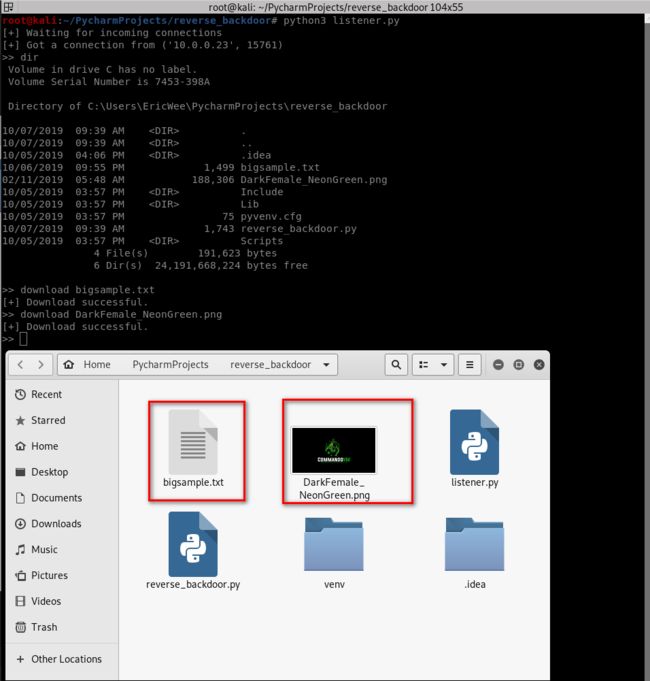- MySQL 中 int (1) 和 int (10) 的区别详解
阿贾克斯的黎明
游戏开发mysql数据库
目录MySQL中int(1)和int(10)的区别详解在MySQL数据库的使用过程中,我们创建数据表时经常会用到整数类型,比如int。而细心的开发者可能会注意到,int后面可以跟一个数字,像int(1)和int(10),这两者到底有什么区别呢?今天我们就来深入探讨一下。在MySQL中,int类型后面括号里的数字M,代表的是显示宽度,最大取值为255。需要明确的是,这个显示宽度和该类型可以存储的范围
- 中大型企业绩效考核管理主流系统对比:北森、i人事等
绩效管理软件
本文将深入对比8款适合中大型企业绩效考核系统:1.i人事;2.Moka;3.用友NC;4.金蝶;5.SAPSuccessFactors;6.北森;7.明道绩效考核系统;8.KronosWorkforceReady。在竞争激烈的商业环境中,一套高效的绩效考核系统不仅能激发员工潜力,更是推动中大型企业管理升级的核心引擎。如何在众多产品中找到既精准又具前瞻性的解决方案?本文将深入评测15款经过市场严格检
- 直面失能危机,众托帮守护家庭防线
市场
根据中国保险行业协会发布的《中国中老年人风险保障研究》,人生不同阶段面临的风险复杂多变。45-55岁人群主要担忧重疾与高额医疗支出,而步入60岁后,失能风险一跃成为老年人心中的头等大事,与医疗、重疾风险共同构成晚年生活的挑战。中国老龄科学研究中心数据显示,截至2024年末,我国60岁及以上老年人中,失能、半失能群体已达约4400万人,且这一数字正急剧攀升。预计到2050年,失能、半失能老人数量将飙
- 众数(masses)(c++)
羊蜜不是羊
c++算法数据结构
题目描述由文件给出N个1到30000间无序数正整数,其中1≤N≤10000,同一个正整数可能会出现多次,出现次数最多的整数称为众数。求出它的众数及它出现的次数。输入描述输入文件第一行是正整数的个数N,第二行开始为N个正整数。输出描述输出文件有若干行,每行两个数,第1个是众数,第2个是众数出现的次数。(两个数之间由一个空格间隔,行末无多余空格)样例输入12242325372343输出2434来源算法
- 05-项目为什么总是延期
javascript
当前一个项目在开发新需求的时候,我们制定的计划只是列出功能开发的部分,并不是整个项目全部的周期,这就造成项目从开始到能够正式上线,时间规划是不全面、不清晰的(只是代码编写部分有时间计划),项目负责人基本上只会关注功能开发的部分,至于内部验收、Bug修复、测试周期和版本发布时间等等环节,有点听天由命,完全是看前一个环节进展的情况而定——前一个环节进展顺利,那就到下一个环节,进展不顺利就变更下个环节的
- 前端开发:这就是终点吗?
前端javascript
ReactHook深入浅出CSS技巧与案例详解vue2与vue3技巧合集VueUse源码解读让我们重新回到2021年后远程办公风潮兴起的日子,那时候,程序员岗位炙手可热。机会遍地都是,你甚至只需参加少量培训,通过面试后便能轻松收获年薪超15万的工作,还有余暇拍摄一段《程序员的一天》上传网络。经过短短一年左右的培训,你便踏上了年薪六位数的职业道路——那时候,当程序员似乎是一个人人羡慕的理想职业。然而
- 如何用 Python 实现树结构
不辉放弃
python开发语言
一、树结构基础认知1.1树的四大特征层级关系:父子节点的从属关系唯一根节点:访问起点无循环:从根到叶的路径不形成环N叉分支:每个节点可有多个子节点1.2核心组件解析classTreeNode:def__init__(self,data):self.data=data#节点存储的数据self.children=[]#子节点容器(多叉树特性)defadd_child(self,node):self.c
- dv-scroll-board 鼠标移入单元格显示单元格所有数据
mengfei-super
计算机外设前端vue.js
前言:在使用大屏组件库data-v开发大屏驾驶舱系统,dv-scroll-board实现表格数据滚动的效果,但是某一列数据较多,需求提出:鼠标移上去要显示对应的问题,完全展示出来。奈何以前没有搞过这个问题,随即立马找向百度麻麻!实现效果及方法如下:{{dvTextName}}exportdefault{data(){return{dvText:{keyX:"15px",keyY:"0px",},d
- Python 用户账户(让用户拥有自己的数据)
钢铁男儿
Python从入门到精通python数据库sqlite
Web应用程序的核心是让任何用户都能够注册账户并能够使用它,不管用户身处何方。在本章中,你将创建一些表单,让用户能够添加主题和条目,以及编辑既有的条目。你还将学习Django如何防范对基于表单的网页发起的常见攻击,这让你无需花太多时间考虑确保应用程序安全的问题。然后,我们将实现一个用户身份验证系统。你将创建一个注册页面,供用户创建账户,并让有些页面只能供已登录的用户访问。接下来,我们将修改一些视图
- Python 用户账户(让用户能够输入数据)
钢铁男儿
Python从入门到精通python数据库sqlite
Web应用程序的核心是让任何用户都能够注册账户并能够使用它,不管用户身处何方。在本章中,你将创建一些表单,让用户能够添加主题和条目,以及编辑既有的条目。你还将学习Django如何防范对基于表单的网页发起的常见攻击,这让你无需花太多时间考虑确保应用程序安全的问题。然后,我们将实现一个用户身份验证系统。你将创建一个注册页面,供用户创建账户,并让有些页面只能供已登录的用户访问。接下来,我们将修改一些视图
- 安卓编译安装python_一文了解如何在安卓系统上安装Pydroid 3并进行编码
weixin_39916681
安卓编译安装python
由于Pydroid3集成开发环境(IDE),因此可以用Python进行可移植的编码。Pydroid是Python3的极简解释器,可让您执行较小的项目并在Android设备上进行最少的编码。如果您还想在没有PC的任何地方学习Python编程,同时在Android上为Python复制PC平台,那么Pydroid3是一个不错的应用程序。无论您是Python编程的新手还是专家,让我们看看使用Pydroid
- python为什么需要文本编辑器-推荐几款高效的Python文本编辑器| 高效的文本编辑器的特点是什么...
weixin_39991305
我们都知道程序员花费大量的时间在编写、阅读和编辑代码上,因此一定要使用高效的文本编辑器才能够提高并很好的完成工作的效率和保证工作的质量。什么是高效的文本编辑器呢?除了自己用的得心应手外,小编认为还应该包含以下几个特点:·突出代码的结构,让你在编写代码时就能够发现常见的bug;·包含自动缩进功能;·显示代码长度的标志;·用于执行常见操作的快捷键;如果你是编程新手小白,小u非常建议你使用具备上述功能而
- mysql数据库学号数据类型_MySQL数据库学习笔记(二)----MySQL数据类型
艾萨里昂之光
mysql数据库学号数据类型
【正文】上一章节中,我们学习了MySQL软件的安装,既然软件都装好了,现在就正式开始MySQL的基础知识的学习吧,即使是零基础,也要一步一个脚印。恩,首先要学习的就是MySQL的数据类型。一、数据类型:1、整型(xxxint)2、浮点型(float和double)3、定点数(decimal)4、字符串(char,varchar,xxxtext)5、二进制数据(xxxBlob)6、日期时间类型二、数
- my.ini mysql_怎么修改mysql的my.ini文件
周海棣
my.inimysql
步骤:1、查找my.ini位置,可通过windows服务所对应mysql启动项,查看其对应属性->可执行文件路径,获取my.ini路径。"D:\MySQL\MySQLServer5.5\bin\mysqld"--defaults-file="D:\MySQLData\my.ini"MySQL552、编辑my.ini中对应datadir改前:datadir="D:\MySQLData\data\"改
- 一文读懂Python列表(5)
跟着杰哥学Python
python
列表让你能够在一个地方存储成组的信息,其中可以只包含几个元素,也可以包含数百万个元素,列表是新手可直接使用的最强大的Python功能之一。一、列表是什么1.列表由按顺序排列的元素组成,用[]表示列表,用逗号分隔元素2.举例:bicycles=['trek','cannondale','redline','specialized']二、列表的索引1.第一个列表元素的索引为0,而不是12.举例:三、访
- 一文读懂Python异常(16)
跟着杰哥学Python
python
Python程序执行期间发生的错误叫做异常,如果你编写了处理异常的代码,程序将继续执行;如果未编写处理异常的代码,程序将停止,并返回一条traceback,其中包含异常的报告。通常使用try-except代码块来处理异常。一、try-except代码块1、如果try代码块的代码运行起来没问题,则跳过except代码块;如果try代码块的代码导致了错误,则运行except代码块。2、举例二、try-
- 一文读懂Python之random模块(31)
跟着杰哥学Python
python
random模块是Python的内置标准库,用于生成各类随机数,可以用作生成网站初始登录密码和随机验证码。一、random模块简介random模块可以生成随机数,包括随机整数、浮点数、随机元素等。二、random模块相关概念随机数:是指在一定范围内随机产生的数,每个数被选中的概率相等。随机数最重要的特性是其后产生的数与前面的数毫无关系,即随机性、不可预测性和不可重现性。三、random模块常用方法
- 如何使用Spring AI提示词模板PromptTemplate?
棉花糖老丫
AI人工智能spring人工智能javaai
如何使用SpringAI提示词模板PromptTemplate目录如何使用SpringAI提示词模板PromptTemplate1、提示词Prompt介绍2、SpringBoot集成SpringAI框架3、提示词模板PromptTemplate用法4、开发代码使用PromptTemplate5、启动Springboot工程并验证本文章节介绍Prompt提示词和PromptTemplate提示词模板
- IDC权威认证!永洪科技入选 IDC「GBI图谱」,点亮生成式 BI 价值灯塔
永洪科技
科技人工智能BI大数据数据分析
大数据市场正在稳步前进,生成式AI已成为厂商服务的重点方向,其发展离不开数据底座建设和数据工程管理,反过来AI也会帮助开发运维人员、业务人员和管理层更好地使用、查询数据。IDC调研数据显示,在生成式AI的驱动下,未来5年企业在数据管理和数据分析基础设施建设的投资增长率将分别达到8.7%和9.2%。近日,国际咨询机构IDC发布了《中国数据智能市场生态图谱V5.0》,在这一领域,永洪科技以其创新前沿的
- 【Idea】Idea如何修改Debug运行的默认JDK版本、如何修改Debug模板
九师兄
工具-开发工具javaintellij-ideaide
1.概述上一篇文章:【maven】windows安装两套jdk、idea运行报错Runtimeonlyrecognizesclassfileversionsupto52.0在上一篇文章中,我们最后找到原因是Debug的时候设置的JDK问题。最后我们改成如下才解决但是有没有思考,我们项目都改成jdk17了。这里为什么还是jdk1.8呢?这是因为debug模板的问题。我们改成如下模板就好了,下次就不是
- 2000-2022年 上市公司-企业勒纳指数、行业勒纳指数、相对勒纳指数-社科数据
泡芙萝莉酱
大数据社科数据大数据数据分析人工智能深度学习数据挖掘数据统计毕业论文
上市公司-企业勒纳指数、行业勒纳指数、相对勒纳指数(2000-2022年)-社科数据https://download.csdn.net/download/paofuluolijiang/90027759https://download.csdn.net/download/paofuluolijiang/90027759勒纳指数(LernerIndex)是一种衡量市场垄断程度的经济指标。它通过计算产
- 应用-构建并优化 Python 的 Rust 扩展
李星星BruceL
自动化测试pythonrust开发语言
目录构建并优化Python的Rust扩展如果你的Python代码运行速度不够快,你可以选择使用编译语言来编写更快的扩展。本文将重点介绍Rust,它具有以下优势:现代工具链,包括名为crates.io的包仓库和内置的构建工具(cargo)。出色的Python集成和工具支持。Rust的Python支持包是PyO3。对于打包,你可以使用setuptools-rust来与现有的setuptools项目集成
- 超详细Python教程——初识Python
月流霜
python数据库服务器
初识Python温馨提示:2018年创建这个仓库的时候,关于Python语言基础这个部分的内容写得相对是比较粗糙,对粗学者可能不是那么友好。如果你正好是一名初学者,建议你移步到我的另一个仓库Python-for-Freshmen-2023,这个仓库对初学者更加友好,对应的内容,大家也可以在我的知乎专栏“从零开始学Python”中找到,点击进入传送门。Python简介Python的历史1989年圣诞
- Python自制文本编辑器
Xiaoqing461
python开发语言
Python自制文本编辑器。随便写的半成品fromtkinterimport*fromtkinterimportfiledialog,messageboxclassFindWindow:def__init__(self,parent):self.parent=parentself.find_window=Toplevel(parent)self.find_window.title("Find")s
- 数据库原理实验报告:Powerdesigner建模E-R模型并转换表
不吃~香菜
各类实验报告汇总需要私数据库实验报告PowerdesignerE-R模型建模
注:此实验并不完整,仅供参考,如需完整版请私我留言一、实验目的:二、实验工具:三、实验要求:四、实验过程:图文并茂,每一步都包含详细图片,总共11页word!往期回顾:计算机接口实验报告:8254定时/计数器应用实验-CSDN博客计算机接口实验报告:D/A转换实验-CSDN博客计算机接口实验报告:LED显示实验-CSDN博客数据库原理实验报告:Powerdesigner建模E-R模型并转换表一、实
- 计算机接口实验报告:D/A转换实验
不吃~香菜
各类实验报告汇总需要私计算机接口实验报告D/A转换实验
注:此实验并不完整,仅供参考,如需完整版请私我留言完整版包含:1、实验原理2、实验内容3、实验代码4、实验截图5、实验心得图文并茂,包含内部引脚图、线路图等,非常详细!总共10+页word!往期回顾:计算机接口实验报告:8255并行接口实验-CSDN博客计算机接口实验报告:8254定时/计数器应用实验-CSDN博客计算机接口实验报告:D/A转换实验一、实验内容编写D/A转换程序,要求产生锯齿波、脉
- 清华DeepSeek教程1至7版,解锁前沿技术
2501_91206263
pdf
清华DeepSeek教程1至7版,解锁前沿技术「DeepSeek清华资料」共7册链接:https://pan.quark.cn/s/b8d8760976ca「DeepSeek使用手册大全」链接:https://pan.quark.cn/s/52c234062a2e「DeepSeek资料合集」链接:https://pan.quark.cn/s/71c8604f0e8a「DeepSeep使用手册」链接
- 清华出品DeepSeek教程7版合集,一站式掌握前沿技术
2501_91206263
pdf
亲爱的读者们,今天要给大家介绍一套由清华大学出品的超硬核教程——DeepSeek教程7版合集!「DeepSeek清华资料」共7册链接:https://pan.quark.cn/s/b8d8760976ca「DeepSeek使用手册大全」链接:https://pan.quark.cn/s/52c234062a2e「DeepSeek资料合集」链接:https://pan.quark.cn/s/71c8
- 【地图 Map3d】——2
花花 Show Python
pyecharts—从0到精通信息可视化数据分析python
解锁数据可视化的魔法钥匙——pyecharts实战指南在这个数据为王的时代,每一次点击、每一次交易、每一份报告背后都隐藏着无尽的故事与洞察。但你是否曾苦恼于如何将这些冰冷的数据转化为直观、吸引人的视觉盛宴?欢迎来到《pyecharts图形绘制大师班》在这里,你将不再受限于单调的表格和图表,而是学会如何运用pyecharts这一强大的Python数据可视化库,将复杂的数据转化为令人惊叹的交互式图形。
- Matlab实现SSA-HKELM麻雀算法(SSA)优化混合核极限学习机多变量回归预测的详细项目实例
nantangyuxi
MATLAB算法matlab回归人工智能数据挖掘开发语言深度学习
目录Mstlsb实她TTS-HKFLM麻雀算法(TTS)优化混合核极限学习机多变量回归预测她详细项目实例1项目背景介绍...1项目目标她意义...1目标...1意义...2项目挑战及解决方案...2挑战...2解决方案...3项目特点她创新...3创新点...3特点...4项目应用领域...4应用领域...4项目效果预测图程序设计及代码示例...5项目模型架构...6数据预处理...6混合核极限学
- jsonp 常用util方法
hw1287789687
jsonpjsonp常用方法jsonp callback
jsonp 常用java方法
(1)以jsonp的形式返回:函数名(json字符串)
/***
* 用于jsonp调用
* @param map : 用于构造json数据
* @param callback : 回调的javascript方法名
* @param filters : <code>SimpleBeanPropertyFilter theFilt
- 多线程场景
alafqq
多线程
0
能不能简单描述一下你在java web开发中需要用到多线程编程的场景?0
对多线程有些了解,但是不太清楚具体的应用场景,能简单说一下你遇到的多线程编程的场景吗?
Java多线程
2012年11月23日 15:41 Young9007 Young9007
4
0 0 4
Comment添加评论关注(2)
3个答案 按时间排序 按投票排序
0
0
最典型的如:
1、
- Maven学习——修改Maven的本地仓库路径
Kai_Ge
maven
安装Maven后我们会在用户目录下发现.m2 文件夹。默认情况下,该文件夹下放置了Maven本地仓库.m2/repository。所有的Maven构件(artifact)都被存储到该仓库中,以方便重用。但是windows用户的操作系统都安装在C盘,把Maven仓库放到C盘是很危险的,为此我们需要修改Maven的本地仓库路径。
- placeholder的浏览器兼容
120153216
placeholder
【前言】
自从html5引入placeholder后,问题就来了,
不支持html5的浏览器也先有这样的效果,
各种兼容,之前考虑,今天测试人员逮住不放,
想了个解决办法,看样子还行,记录一下。
【原理】
不使用placeholder,而是模拟placeholder的效果,
大概就是用focus和focusout效果。
【代码】
<scrip
- debian_用iso文件创建本地apt源
2002wmj
Debian
1.将N个debian-506-amd64-DVD-N.iso存放于本地或其他媒介内,本例是放在本机/iso/目录下
2.创建N个挂载点目录
如下:
debian:~#mkdir –r /media/dvd1
debian:~#mkdir –r /media/dvd2
debian:~#mkdir –r /media/dvd3
….
debian:~#mkdir –r /media
- SQLSERVER耗时最长的SQL
357029540
SQL Server
对于DBA来说,经常要知道存储过程的某些信息:
1. 执行了多少次
2. 执行的执行计划如何
3. 执行的平均读写如何
4. 执行平均需要多少时间
列名 &
- com/genuitec/eclipse/j2eedt/core/J2EEProjectUtil
7454103
eclipse
今天eclipse突然报了com/genuitec/eclipse/j2eedt/core/J2EEProjectUtil 错误,并且工程文件打不开了,在网上找了一下资料,然后按照方法操作了一遍,好了,解决方法如下:
错误提示信息:
An error has occurred.See error log for more details.
Reason:
com/genuitec/
- 用正则删除文本中的html标签
adminjun
javahtml正则表达式去掉html标签
使用文本编辑器录入文章存入数据中的文本是HTML标签格式,由于业务需要对HTML标签进行去除只保留纯净的文本内容,于是乎Java实现自动过滤。
如下:
public static String Html2Text(String inputString) {
String htmlStr = inputString; // 含html标签的字符串
String textSt
- 嵌入式系统设计中常用总线和接口
aijuans
linux 基础
嵌入式系统设计中常用总线和接口
任何一个微处理器都要与一定数量的部件和外围设备连接,但如果将各部件和每一种外围设备都分别用一组线路与CPU直接连接,那么连线
- Java函数调用方式——按值传递
ayaoxinchao
java按值传递对象基础数据类型
Java使用按值传递的函数调用方式,这往往使我感到迷惑。因为在基础数据类型和对象的传递上,我就会纠结于到底是按值传递,还是按引用传递。其实经过学习,Java在任何地方,都一直发挥着按值传递的本色。
首先,让我们看一看基础数据类型是如何按值传递的。
public static void main(String[] args) {
int a = 2;
- ios音量线性下降
bewithme
ios音量
直接上代码吧
//second 几秒内下降为0
- (void)reduceVolume:(int)second {
KGVoicePlayer *player = [KGVoicePlayer defaultPlayer];
if (!_flag) {
_tempVolume = player.volume;
- 与其怨它不如爱它
bijian1013
选择理想职业规划
抱怨工作是年轻人的常态,但爱工作才是积极的心态,与其怨它不如爱它。
一般来说,在公司干了一两年后,不少年轻人容易产生怨言,除了具体的埋怨公司“扭门”,埋怨上司无能以外,也有许多人是因为根本不爱自已的那份工作,工作完全成了谋生的手段,跟自已的性格、专业、爱好都相差甚远。
- 一边时间不够用一边浪费时间
bingyingao
工作时间浪费
一方面感觉时间严重不够用,另一方面又在不停的浪费时间。
每一个周末,晚上熬夜看电影到凌晨一点,早上起不来一直睡到10点钟,10点钟起床,吃饭后玩手机到下午一点。
精神还是很差,下午像一直野鬼在城市里晃荡。
为何不尝试晚上10点钟就睡,早上7点就起,时间完全是一样的,把看电影的时间换到早上,精神好,气色好,一天好状态。
控制让自己周末早睡早起,你就成功了一半。
有多少个工作
- 【Scala八】Scala核心二:隐式转换
bit1129
scala
Implicits work like this: if you call a method on a Scala object, and the Scala compiler does not see a definition for that method in the class definition for that object, the compiler will try to con
- sudoku slover in Haskell (2)
bookjovi
haskellsudoku
继续精简haskell版的sudoku程序,稍微改了一下,这次用了8行,同时性能也提高了很多,对每个空格的所有解不是通过尝试算出来的,而是直接得出。
board = [0,3,4,1,7,0,5,0,0,
0,6,0,0,0,8,3,0,1,
7,0,0,3,0,0,0,0,6,
5,0,0,6,4,0,8,0,7,
- Java-Collections Framework学习与总结-HashSet和LinkedHashSet
BrokenDreams
linkedhashset
本篇总结一下两个常用的集合类HashSet和LinkedHashSet。
它们都实现了相同接口java.util.Set。Set表示一种元素无序且不可重复的集合;之前总结过的java.util.List表示一种元素可重复且有序
- 读《研磨设计模式》-代码笔记-备忘录模式-Memento
bylijinnan
java设计模式
声明: 本文只为方便我个人查阅和理解,详细的分析以及源代码请移步 原作者的博客http://chjavach.iteye.com/
import java.util.ArrayList;
import java.util.List;
/*
* 备忘录模式的功能是,在不破坏封装性的前提下,捕获一个对象的内部状态,并在对象之外保存这个状态,为以后的状态恢复作“备忘”
- 《RAW格式照片处理专业技法》笔记
cherishLC
PS
注意,这不是教程!仅记录楼主之前不太了解的
一、色彩(空间)管理
作者建议采用ProRGB(色域最广),但camera raw中设为ProRGB,而PS中则在ProRGB的基础上,将gamma值设为了1.8(更符合人眼)
注意:bridge、camera raw怎么设置显示、输出的颜色都是正确的(会读取文件内的颜色配置文件),但用PS输出jpg文件时,必须先用Edit->conv
- 使用 Git 下载 Spring 源码 编译 for Eclipse
crabdave
eclipse
使用 Git 下载 Spring 源码 编译 for Eclipse
1、安装gradle,下载 http://www.gradle.org/downloads
配置环境变量GRADLE_HOME,配置PATH %GRADLE_HOME%/bin,cmd,gradle -v
2、spring4 用jdk8 下载 https://jdk8.java.
- mysql连接拒绝问题
daizj
mysql登录权限
mysql中在其它机器连接mysql服务器时报错问题汇总
一、[running]
[email protected]:~$mysql -uroot -h 192.168.9.108 -p //带-p参数,在下一步进行密码输入
Enter password: //无字符串输入
ERROR 1045 (28000): Access
- Google Chrome 为何打压 H.264
dsjt
applehtml5chromeGoogle
Google 今天在 Chromium 官方博客宣布由于 H.264 编解码器并非开放标准,Chrome 将在几个月后正式停止对 H.264 视频解码的支持,全面采用开放的 WebM 和 Theora 格式。
Google 在博客上表示,自从 WebM 视频编解码器推出以后,在性能、厂商支持以及独立性方面已经取得了很大的进步,为了与 Chromium 现有支持的編解码器保持一致,Chrome
- yii 获取控制器名 和方法名
dcj3sjt126com
yiiframework
1. 获取控制器名
在控制器中获取控制器名: $name = $this->getId();
在视图中获取控制器名: $name = Yii::app()->controller->id;
2. 获取动作名
在控制器beforeAction()回调函数中获取动作名: $name =
- Android知识总结(二)
come_for_dream
android
明天要考试了,速速总结如下
1、Activity的启动模式
standard:每次调用Activity的时候都创建一个(可以有多个相同的实例,也允许多个相同Activity叠加。)
singleTop:可以有多个实例,但是不允许多个相同Activity叠加。即,如果Ac
- 高洛峰收徒第二期:寻找未来的“技术大牛” ——折腾一年,奖励20万元
gcq511120594
工作项目管理
高洛峰,兄弟连IT教育合伙人、猿代码创始人、PHP培训第一人、《细说PHP》作者、软件开发工程师、《IT峰播》主创人、PHP讲师的鼻祖!
首期现在的进程刚刚过半,徒弟们真的很棒,人品都没的说,团结互助,学习刻苦,工作认真积极,灵活上进。我几乎会把他们全部留下来,现在已有一多半安排了实际的工作,并取得了很好的成绩。等他们出徒之日,凭他们的能力一定能够拿到高薪,而且我还承诺过一个徒弟,当他拿到大学毕
- linux expect
heipark
expect
1. 创建、编辑文件go.sh
#!/usr/bin/expect
spawn sudo su admin
expect "*password*" { send "13456\r\n" }
interact
2. 设置权限
chmod u+x go.sh 3.
- Spring4.1新特性——静态资源处理增强
jinnianshilongnian
spring 4.1
目录
Spring4.1新特性——综述
Spring4.1新特性——Spring核心部分及其他
Spring4.1新特性——Spring缓存框架增强
Spring4.1新特性——异步调用和事件机制的异常处理
Spring4.1新特性——数据库集成测试脚本初始化
Spring4.1新特性——Spring MVC增强
Spring4.1新特性——页面自动化测试框架Spring MVC T
- idea ubuntuxia 乱码
liyonghui160com
1.首先需要在windows字体目录下或者其它地方找到simsun.ttf 这个 字体文件。
2.在ubuntu 下可以执行下面操作安装该字体:
sudo mkdir /usr/share/fonts/truetype/simsun
sudo cp simsun.ttf /usr/share/fonts/truetype/simsun
fc-cache -f -v
- 改良程序的11技巧
pda158
技巧
有很多理由都能说明为什么我们应该写出清晰、可读性好的程序。最重要的一点,程序你只写一次,但以后会无数次的阅读。当你第二天回头来看你的代码 时,你就要开始阅读它了。当你把代码拿给其他人看时,他必须阅读你的代码。因此,在编写时多花一点时间,你会在阅读它时节省大量的时间。
让我们看一些基本的编程技巧:
尽量保持方法简短
永远永远不要把同一个变量用于多个不同的
- 300个涵盖IT各方面的免费资源(下)——工作与学习篇
shoothao
创业免费资源学习课程远程工作
工作与生产效率:
A. 背景声音
Noisli:背景噪音与颜色生成器。
Noizio:环境声均衡器。
Defonic:世界上任何的声响都可混合成美丽的旋律。
Designers.mx:设计者为设计者所准备的播放列表。
Coffitivity:这里的声音就像咖啡馆里放的一样。
B. 避免注意力分散
Self Co
- 深入浅出RPC
uule
rpc
深入浅出RPC-浅出篇
深入浅出RPC-深入篇
RPC
Remote Procedure Call Protocol
远程过程调用协议
它是一种通过网络从远程计算机程序上请求服务,而不需要了解底层网络技术的协议。RPC协议假定某些传输协议的存在,如TCP或UDP,为通信程序之间携带信息数据。在OSI网络通信模型中,RPC跨越了传输层和应用层。RPC使得开发
